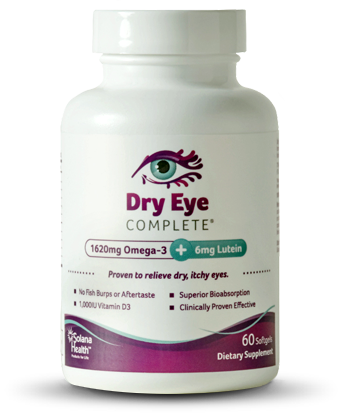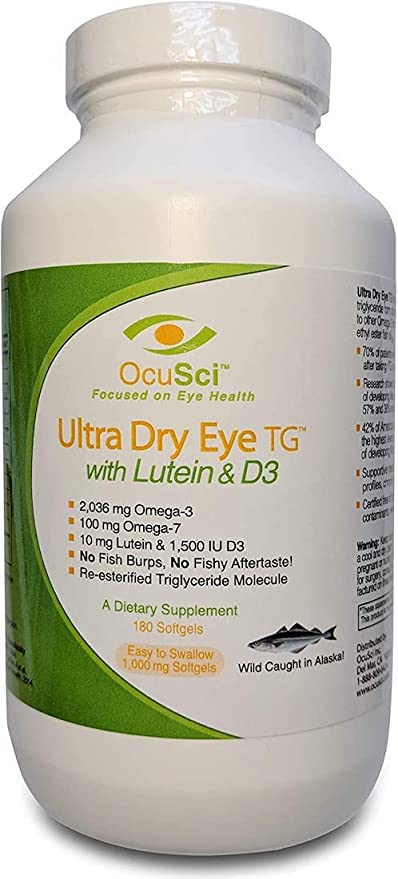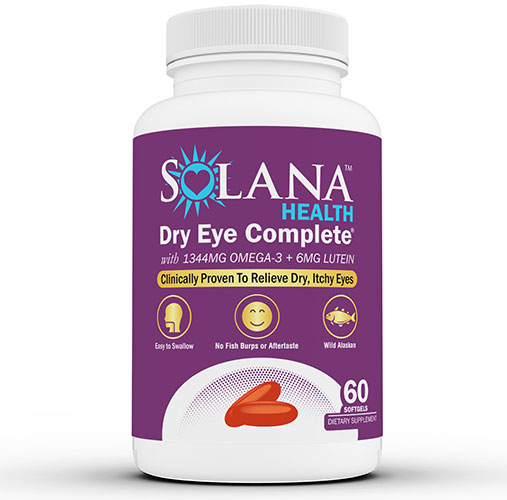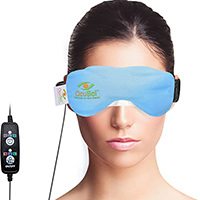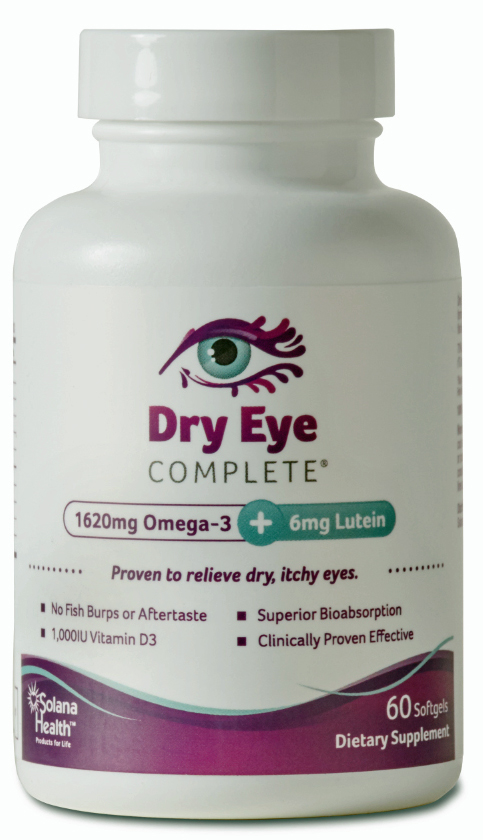The eyes are the windows to the soul and some of our most important, but least cared for organs. We take them for granted and often do things to them that are really not beneficial. Things like wearing contact lenses excessively, staring at computer screens for too long, not blinking enough, wearing makeup and not properly removing it, spending time in dry environments, not wearing sunglasses, and so on, can all do tremendous damage to our eyes and their tears. All of these can lead to a condition known as dry eye syndrome, or DES. It is now also believed that there may be a link between DES and vitamin D.
Understanding Tears
When we think of tears, we usually think of the things that pour out of our eyes when we experience strong emotions. While these certainly are tears, they only pour out of our eyes because we produce so many of them in response to certain feelings that the ducts can no longer cope with them, and they literally overflow. But tears happen all the time and are actually renewed every time we blink.
A tear, which is actually a ‘tear film lid’, is made up of three layers. It is responsible for keeping the eyes lubricated, nourished and protected from foreign invaders. The three layers are:
- A mucus layer.
- An aqueous layer, which also contains saline and makes up about 90% of the tear itself.
- A lipid, or oily, layer.
People who have dry eye have a dysfunction in any or all of those layers. It is also possible that they simply produce insufficient tears, although this is also usually linked to a dysfunction in one of the three layers. People who suffer from DES often look for natural remedies to help them alleviate the symptoms, which include redness, itchiness, dryness, and the sensation that there is a foreign body in the eye. Vitamin D may play a role in alleviating the symptoms.
Understanding Vitamin D
Vitamin D is the sunshine vitamin. Our body produces it naturally when it is exposed to the ultraviolet rays of the sun. The vitamin’s primary responsibility is to enable the body to absorb calcium and phosphorous. However, we now know that the vitamin is responsible for many other things as well, and almost every cell in the body – including the cells of the eyes – has a vitamin D receptor.
Vitamin D is also responsible for the maintenance of the immune system. As such, it helps us to fight viruses and bacteria. The official statement, at present, is that vitamin D does not play a role in fighting DES. This is because DES is not caused by a virus, bacteria or deficiency in calcium or phosphorous. However, it is also known that many people with autoimmune disorders will suffer from dry eye syndrome, which would suggest that there is actually a possible link between a vitamin D deficiency and DES. Furthermore, since it is believed around 60% of the adult population in this country has a vitamin D deficiency, taking a supplement should at least improve the overall condition of the body and, in so doing, possibly also improve the signs and symptoms of DES.
New Research Sheds More Light
While, as just stated, the official position is that there is no link between vitamin D and DES, new research has now officially questioned this. The International Journal of Rheumatic Disease published a study that suggested that impaired tear function can exist as a result of a vitamin D deficiency. The study was conducted at the Kocaeli Derince Training and Research Hospital, which is in Turkey. Just under 100 premenopausal women took part, 50 of whom had a vitamin D deficiency, and 48 who did not. It was found that those who did have the deficiency were more likely to have quicker tear break-up times, a strong indicator to DES, and also scored poorer on the Schirmer’s test. As a result, the researchers stated that there may be a role to play for vitamin D in the development of dry eye.
Improving Eye Health with Vitamin D
The study above is the first of its kind, which means that no other scientists have looked at the link between vitamin D and DES. However, many other studies have looked at the link between vitamin D and the overall health of the eye. Most people consider vitamin A and beta-carotene to be vital in the health of the eye, but vitamin D now appears to be even more crucial.
The University College London’s Institute of Ophthalmology conducted a study on the eye health of elderly mice, giving them a vitamin D3 supplement. After just six weeks, the following improvements were noted:
- Vision was improved
- Retinal inflammation levels were reduced, as were accumulations of amyloid beta, one of the signs of aging.
- Retinal macrophage was significantly reduced.
What this suggests is that it may have a role to play in slowing down the progression of a condition known as age-related macular degeneration (AMD). AMD is the leading cause of loss of vision in elderly people. While it only affects central vision, this may become so impaired that people are classed as legally blind. Interestingly, DES is often found as a secondary condition together with AMD. As such, there may be a suggestion that, by slowing down the progression of AMD, people are also less likely to suffer from DES.
Another interesting part of this, is that, unlike the Turkish study, this one is not unique in its kind. Other research has revealed similar results. It has been found that people who did not have a vitamin D deficiency had a 59% lower chance of developing AMD.
Resources and References:
- Vitamin D Enhances Corneal Epithelial Barrier Function – Effects of Vitamin D on the cornea. (NIH.gov)
- The Association of Vitamin D Deficiency with Tear Break-Up Time and Schirmer Testing in Non-Sjogren Dry Eye – Connection between vitamin D deficiency and dry eyes. (Nature.com)
- Dry Eye in Vitamin D Deficiency: More Than an Incidental Association – Link between vitamin D and dry eyes. (International Journal of Rheumatic Diseases)
- Vitamin D – General information on vitamin D. (NIH.gov)

